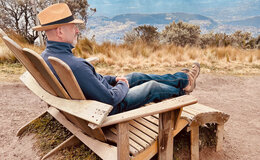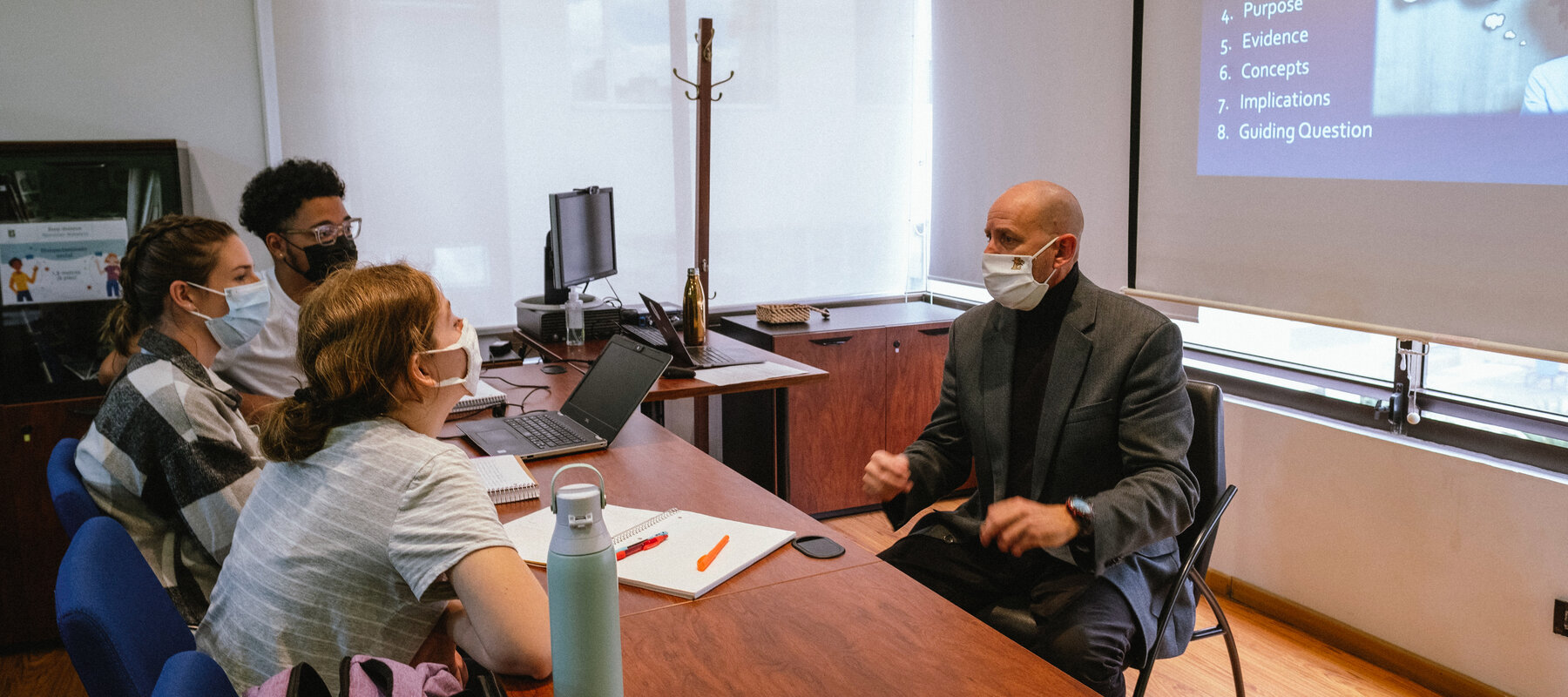David Casagrande, professor of anthropology with a joint appointment with the Environmental Initiative, shared the lessons he learned as the faculty lead for Lehigh Launch: Semester in Ecuador at the annual meeting of the Society for Applied Anthropology on March 31.
He presented a paper about Lehigh Launch and chaired a session on higher education titled, “Teaching and Learning in Varied Post-Secondary Contexts.”
Lehigh Launch is an immersive, integrated first-semester experience with a focus on place. In Ecuador, students are based in the capital city of Quito, where they live in homestays with local families. They visit a cloud forest and a research station in the Amazon rainforest, and then head to the Galapagos Islands for the final three weeks. The program hosted its first cohort of 11 students in fall 2022. Its sister program, based in the American West, started in 2020.

The Intersection of Student Learning and Faculty Research Interests
When the opportunity arose to lead this program, Casagrande saw it as a chance to connect his ongoing research and his teaching in a new context. As an ecological anthropologist, he studies how culture shapes the way humans interact with natural environments, including issues of environmental policy. A large portion of his research has been done in Latin America. He has lived with cowboys in Venezuela and Mayans in Mexico, and developed a long-standing relationship with Indigenous people to understand their adaptation to climate change.
“I just had this personal desire to use my expertise and ability to navigate Latin American countries in teaching,” Casagrande said.
Lehigh Launch encourages students to take on new perspectives and develop their worldview through rigorous coursework and on-the-ground learning. As the faculty leader, Casagrande says he based the Ecuador program on a pedagogy that combines mindfulness meditation with courses in ecology, Spanish language and anthropology to study environmental issues with a focus on cultural diversity in Ecuador’s Highlands, the Amazon and the Galápagos Islands.
He chose the theme of “adaptation” to integrate the curriculum. So for example, students studied sustainability and climate degradation, and then they interviewed residents and met with Indigenous people to learn how they are adapting to the climate crisis.
Casagrande acknowledges that the experience was sometimes overstimulating for students, who were living with a new family and operating in an unfamiliar culture. But with the right support, he says that they were highly successful in directing this contextual input into their research projects at sites such as the Galapagos Islands.
“I think one of the skills we want to learn in college is to be able to take information from a lot of different sources, combine it and make sense out of it,” Casagrande says. “And so in the integrative seminar, we really worked on skills on how to process that information, make sense out of it and turn it into meaningful questions.”
The experience prompted meaningful questions for Casagrande too. While his previous research focused on Venezuela and Mexico, he now hopes to start new projects in Ecuador to study that country’s national policy context. He will also lead Lehigh Launch again in fall 2023.
Using Anthropology to Improve Teaching and Learning
Applied anthropology uses the scientific study of human behavior and culture to solve practical human problems. The Society for Applied Anthropology includes academics as well as professionals in fields like business, law, medicine and government. Casagrande has been a member for 25 years. While he has given papers at the international conference before, those presentations focused on his research or public policy. This will be the first time he’s shared information about teaching.
“How do you take anthropology and use it more effectively in education?” Casagrande asks. “How do you become better teachers when you're teaching anthropology? That's what this organization is about.”
Casagrande said the Lehigh Launch Ecuador program teaches personal well-being, critical thinking, emotional intelligence, and cultural relativism that students can use during college and subsequent careers.
He says the paper he wrote for the conference discusses student recruitment and selection, program assessment and benefits and challenges of semester-long cultural immersion with first-semester students. The theme of adaptation, he says, helps students to make meaning from their personal and academic experiences.
“It's an organization I belong to that I really like,” Casagrande says. “And I thought I would have something different to say this time.”
